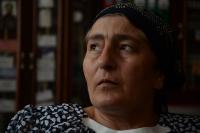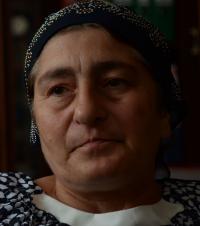I built a house in the memory of my daughter

Download image
Lekujeva Raisa Choadonova was born in the mountainous village of Faraskatta in 1962. In 1972 she moved to Beslan with her parents and siblings. Both of her parents are Digor people. Digor is a dialect of Ossetian language. After she moved with her parents to Beslan, Raisa had to learn both Ossetian and Russian. She therefore found the first schoolyears difficult. Moreover, in Beslan, she was surprised about what other Christian denominations look like and how does Islam. In Faraskatta all the locals used to go pray to the Svjatojkust holy place. Indulgencies were being sold there and once a year the village people would sacrifice a bull or a ram to the Lord there. Eventually, Raisa was baptized and at present she and her children attend the Eastern Orthodox Church. She got married in 1982, giving birth to five children: Suslan (1982), Elvira (1983), Ruslan (1986), Regina (1989) and the youngest Zaurbek (1997). On 1 September 2004 she and her son were in a hospital in Vladikavkaz when a woman entered the room and told them that Beslan school No. 2 or 3 was under attack. There was TV in the other room. “When they claimed that the attack was lead against school No. 1 and that there were 350 hostages held in there, I thought that it couldn’t be so since the teaching happened in two shifts and at least 50 teachers and 700 children attended.” Raisa Choadonova hoped that her daughter Regina did not go to school but nobody picked the phone at home. She only learned what really happened as they began transporting the wounded ones into the hospital where she was treated. She spent a month trying to find her daughter Regina in one of the morgues. Eventually, she received her body based on a DNA test. She used the government compensation money to build a house with her own hands in the memory of her daughter, in which she and her family are presently living.

